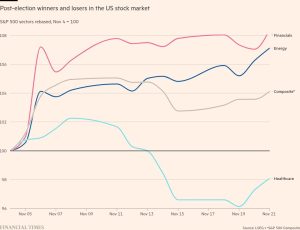UK amends football regulator bill over concerns of state interference

Unlock the Editor’s Digest for free
Roula Khalaf, Editor of the FT, selects her favourite stories in this weekly newsletter.
The UK has dropped a requirement for a new men’s football regulator to consider “foreign and trade policy” when approving club takeovers, ahead of the bill being introduced in parliament on Thursday.
The change “ensures” the regulator will be “fully independent” of government and industry, the Department for Culture Media and Sport said on Wednesday, following concerns from European football governing body Uefa and fan groups that it would lead to political “interference”.
The draft football governance bill had included a clause requiring the body to take into account British foreign and trade policy objectives. But Uefa warned this could have repercussions for England’s participation in Euro 2028, the upcoming international tournament it is due to co-host.
Separately, human rights organisation FairSquare has argued the clause threatened to undermine the independence of the proposed regulator and increase state ownership of English football clubs.
Concerns over political interference follow the acquisition of Premier League side Newcastle United by Saudi Arabia’s sovereign wealth fund in 2021, which went through following lengthy delays.

It later emerged that Saudi Arabia’s crown prince Mohammed bin Salman had told then UK prime minister Boris Johnson that relations between the two governments would be damaged unless the Newcastle deal was approved.
The government will introduce the amended football governance bill on Thursday in the House of Lords. The regulator is being set up to tackle “excessive and reckless risk-taking” in the game, as well as clubs “living way beyond their means”.
Proposals for a new body were championed by former Conservative sports minister Tracey Crouch, who led a government-backed review into the industry. The Labour government has made a series of changes to the bill since it came to power in July.
Despite generating billions in revenue every year, football clubs are known for posting losses and relying on wealthy owners to plug funding gaps.
Bury FC’s expulsion from the league system in 2019 highlighted the financial risks in the game, with the sport drawing further scrutiny after a failed attempt by six Premier League clubs to join a breakaway European Super League, which provoked fan protests and opposition from Johnson.

Fans and communities have “risked losing their cherished clubs” because of financial instability, Nandy said on Wednesday.
“This bill seeks to properly redress the balance, putting fans back at the heart of the game, taking on rogue owners and crucially helping to put clubs up and down the country on a sound financial footing,” she added.
The regulator will be handed powers over payments that the Premier League makes to clubs that are relegated from the top flight to the Championship in England.
The Premier League and the EFL have clashed over the way the top flight should redistribute revenue to the rest of the football pyramid. The regulator will have “backstop” powers to “mediate a fair financial distribution” if the Premier League and the EFL are unable to reach an agreement.
The Premier League has defended “parachute payments” — worth tens of millions a year to an individual club — for encouraging teams to invest in their squads to ensure they are competitive.
However, the English Football League, which administers the Championship, has said payments skew competition and incentivise other clubs to overspend in order to keep up with those in receipt of the payments. The regulator will be given the remit to include parachute payments in its backstop mechanism.
However, the payments will be included in its assessment “only if the regulator considers them to be of systemic risk to financial sustainability”. The bill will require protections for relegated clubs.
In response to the update, the Premier League reiterated its concern about the regulatory framework.
The league said “we believe rigid banking-style regulation, and the regulator’s unprecedented and untested powers to intervene in the distribution of the Premier League’s revenues, could have a negative impact on the League’s continued competitiveness, clubs’ investment in world-class talent and, above all, the aspiration that drives our global appeal and growth”.
#amends #football #regulator #bill #concerns #state #interference






